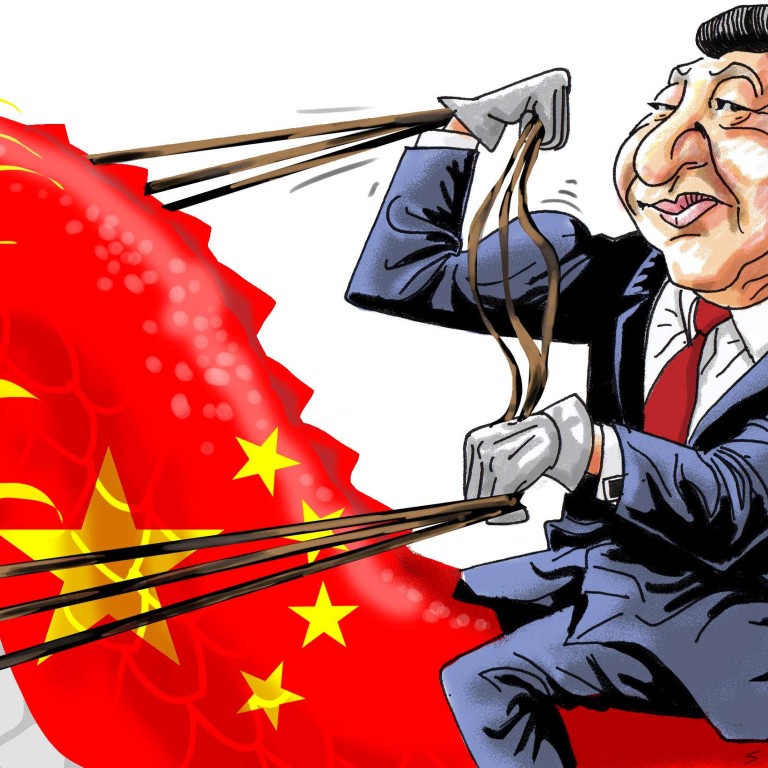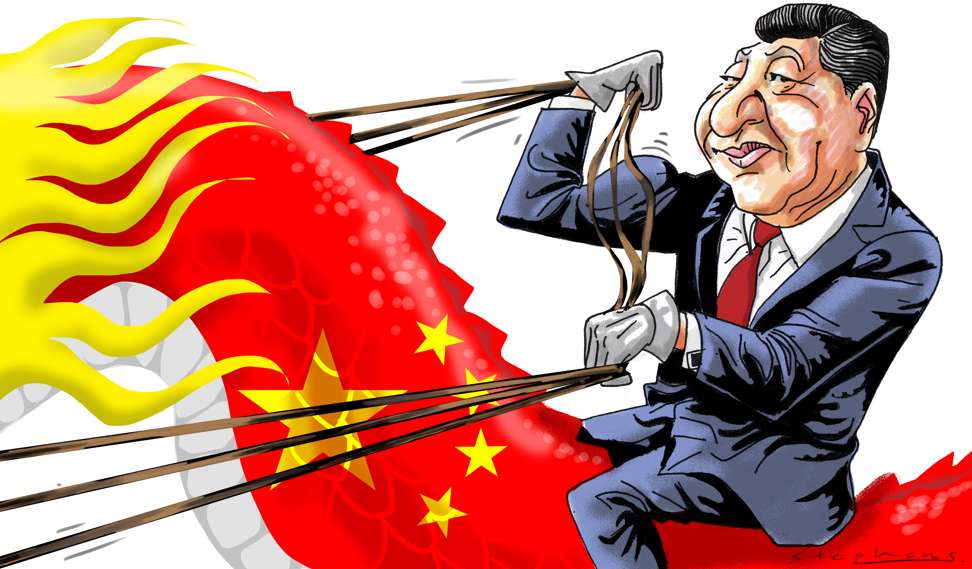
China’s ‘two sessions’ delivers core message on Xi Jinping’s central role
Robert Lawrence Kuhn says the key takeaway from China’s annual NPC and CPPCC meetings could not be clearer – that Xi Jinping’s status as core leader and the country’s core principles of governance are non-negotiable

China watchers scrutinise everything going on here – work reports, press conferences, policy announcements, personnel moves, sideline comments, even seating arrangements. Which policies are stressed? What signals are sent? Any surprises? What’s “in the air”?
The many things China doesn’t want: highlights from Li Keqiang’s press conference
To the untrained eye, the structure and phrases of work reports look similar to those of previous years. But look closely and one sees the small but revelatory differences.
China’s ruling party prides itself on careful, incremental change, and usually this is the case. But occasionally we catch sharper breaks with past practice. This year, three aspects stand out: reform, innovation and, most significantly, Xi’s leadership.

First, while reform has long been a key feature of government work reports, the pervasiveness of reform this year makes it special. Almost every section is founded on reform. Regarding the economy, “supply-side structural reform” is the well-known watchword, and the report calls for cutting industrial overcapacity, reducing urban real estate inventory, deleveraging Chinese firms by decreasing debt, and cutting costs for doing business. All this I expected.
Reform affects almost every aspect of society
What I did not expect was the specificity of directives for cutting costs – with five detailed prescriptions, such as reducing a blizzard of government-imposed fees, about which entrepreneurs have been complaining loudly. Reform affects almost every aspect of society, including the household registration system (hukou), health care, environmental protection, intellectual property rights and streamlining government bureaucracy.
Innovation is stressed for industrial transformation – not simply platitudes promoting science and technology but practical steps, such as enabling universities and research institutes to “operate with autonomy” and to implement “incentive policies like stocks, options and dividends”.
It could hardly be clearer that China’s “socialism with Chinese characteristics” continues to separate itself from the failed forms of 19th-century socialism that founded the old Soviet Union and was passed to China prior to the reforms of Deng Xiaoping (鄧小平).
2017, the year Chairman Xi Jinping will come into his own

One need not be a China hand to see that Xi’s “four comprehensives” – to build a moderately prosperous society, deepen reform, advance the law-based governance of China, and strengthen party self-governance – has been elevated to a foundational theory of the state. In the theory section of the work report, Xi’s contributions take up 39 words in the English translation, more than double the theories of former leaders Deng, Jiang Zemin ( 江澤民 ) and Hu Jintao (胡錦濤), which collectively take up 18 words.
How Xi Jinping has taken on multiple roles ... and amassed unrivalled power in China
Separately, while “Marxism-Leninism” and “Mao Zedong thought” were duly noted in the draft general provisions of civil law, the famous phrases didn’t make the more important government work report. I doubt the cut was made to save space.
The significance of Xi’s role as China’s pre-eminent leader is that it provides political stability and coherent policies, such that the crucial 19th party congress, forthcoming in the autumn, should play out according to expectations. My take from speaking with delegates is that Xi’s leadership position as core of the party is confirmed and enhanced. This means that China can focus on the hard tasks of enhancing reform and transforming the economy.
One other development is notable: the NPC is becoming more an empowered deliberative body and less a “rubber stamp” cheerleader. An example of this is the multifaceted process of constructing a comprehensive civil code, targeted for 2020. After three revisions, the general provisions of civil law finally provides a framework for codifying some 200 civil and commercial laws in constructing a legal system to serve civil society. The NPC’s growing confidence to disclose disputes and to allow, indeed to encourage, debates is promising.
The lone voices of dissent in China’s political wilderness

Many areas of society and government are open to debate, but not the core principles and not the core leader
There are multiple reasons for the campaign, of course. More incisively, we can see how the campaign has been energised by Xi’s “four comprehensives” political theory. One, realising a moderately prosperous society is hindered by corruption; two, reform is resisted by corrupt officials who protect their illicit financial benefits; three, the drive exemplifies the rule of law; four, strictly governing the party could be defined as anti-corruption.
A few of the now-caged “tigers” were convicted of “seriously violating the party’s political discipline” “banding together in gangs and forming factions”, and conducting “non-organisational political activities” – a not very veiled code-phrase for attempting to undermine China’s leadership. By eliminating these political threats, the anti-corruption campaign helps ensure political stability, especially as the country enters the final run-up to the 19th party congress.
There is now no ambiguity: China is under the firm leadership of the party’s Central Committee, with Xi as its core, and alignment with Xi’s “four confidences”doctrine – in which officials are urged to be “confident in China’s chosen path, political system, guiding theories, and culture” – is non-negotiable.
China’s top party cadres pledge loyalty to Xi Jinping in Mao-style self-criticism session ahead of reshuffle
Many areas of society and government are open to debate, but not the core principles and not the core leader. These have been decided and conformity is expected. Only with such unity can the “four comprehensives” bring about the great rejuvenation of the Chinese nation and realise the Chinese dream.
Robert Lawrence Kuhn is a public intellectual, political/economics commentator, and an international corporate strategist. He is the host of Closer to China with R. L. Kuhn on CGTN (produced by Adam Zhu)

